Select Works and Studies on Plotinus (6 vols.)
Digital Logos Edition
Overview
Gain a deeper understanding of philosophy through the ages by studying Plotinus—the founder of Neoplatonism.
Plotinus explored the nature of virtue, happiness, reason, body, and soul. His philosophical investigations developed a complex spiritual cosmology, which centers upon a creator-being whom he refers to as the One. According to his theory, all of life engenders from the One—including the One himself, which Plotinus describes as “the light before the light.” Ultimately, he believed that human beings should reject the material world and seek the higher realm of spirituality, culminating in a reunion with the One. Today, we know of Plotinus’ philosophy through the Enneads, a collection of his writings which his student Porphyry compiled and edited.
Through reading Plotinus, you'll gain insight into the development of philosophy in the western world. Neoplatonism influenced many great thinkers, including Augustine of Hippo, Boethius, Thomas Aquinas, Moses Maimodides, and Hegel.
- Includes two English translations of the Enneads
- Offers two analyses of Plotinus’ philosophy and wisdom
Plotinus’s philosophy stands out as one of the major cultural accomplishments of the late antiquity.
—Paul Kalligas, assistant professor of ancient philosophy, National and Kapodistrian University of Athens
The Enneads are the primary and classical document of Neoplatonism.
—Adolf von Harnack, theologian
- Title: Select Works and Studies on Plotinus
- Volumes: 6
- Pages: 2,524
- Language: English and Greek
- Resource Type: Monographs
- Topic: Ancient Philosophy
- The Ethical Treatises: Being the Treatises of the First Ennead translated by Stephen MacKenna
- Psychic and Physical Treaties; Comprising the Second and Third Enneads translated by Stephen MacKenna
- On the Nature of the Soul, Being the Fourth Ennead translated by Stephen MacKenna
- The Divine Mind, Being the Treatises of the Fifth Ennead translated by Stephen MacKenna
- On the One and Good: Being the Treatises of the Sixth Ennead translated by Stephen MacKenna and B.S. Page
- Select Works of Plotinus translated by Thomas Taylor
- Plotini Opera, Recognovit, vol. 1 edited by Adolphus Kirchhoff
- Plotini Opera, Recognovit, vol. 2 edited by Adolphus Kirchhoff
- The Philosophy of Plotinos: His Life, Times, and Philosophy by Kenneth Sylvan Guthrie
- The Wisdom of Plotinus: A Metaphysical Study by Charles Joseph Whitby
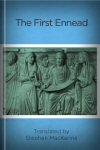
Plotinus addresses the nature of virtue, happiness, and beauty. He also reveals how Plato’s dialectic (analyzing one’s perceptions) can improve one’s understanding of reality.
Contents
- Porphyry’s Life of Plotinus
- The Books of the First Ennead
- The Animate and the Man
- On Virtue
- Dialectic (or The Upward Way)
- On Happiness (or The Authentic Good of Life)
- On Happiness and Extension of Time
- On Beauty
- On the Primal Good and its Secondary Forms
- On Evil, Its Nature and Source
- On The Reasoned Dismissal
- Bibliography and Explanatory Matter
- The Preller-Ritter Conspectus of the Plotinian System
[MacKenna’s translation is] worthy . . . to take its place among the masterpieces of English prose.
—W.B. Yeats, poet
It is one of the very few great translations of our day.
—E.R. Dodds, former Regius Professor of Greek, University of Oxford
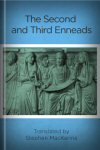
In the Second Ennead, Plotinus discusses the nature of matter and the relationship between potentiality and actuality. In the Third Ennead, he investigates providence and free will, and also describes the nature of time and eternity.
Contents
- The Books of the Third Ennead
- Fate
- Providence: First Treatise
- On Providence: Second Treatise
- Our Tutelary Spirit
- On Love
- The Impassivity of the Unembodied
- Time and Eternity
- Nature Contemplation and the One
- Detached Considerations
- The Books of the Second Ennead
- On the Kosmos or on the Heavenly System
- The Heavenly Circuit
- Are the Stars Causes?
- Matter in its Two Kinds
- On Potentiality and Actuality
- Quality and Form-Idea
- On Complete Transfusion
- Why Distant Objects Appear Small
- Against Those that Affirm the Creator of the Kosmos and the Kosmos Itself to be Evil: [Generally Quoted as “Against the Gnostics”]
- Note on the Order of the Tractates of the Third and Second Enneads
- Acknowledgements
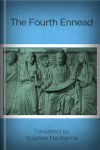
Here Plotinus addresses the immortality of the soul and the relationship between the body and the soul.
Contents
- The Books of the Fourth Ennead
- On the Essence of the Soul (I)
- On the Essence of the Soul (II)
- Problems of the Soul (I)
- Problems of the Soul (II)
- Problems of the Soul (III)
- Perception and Memory
- The Immortality of the Soul
- The Soul’s Descent into Body
- Are All Souls One?
- Acknowledgements
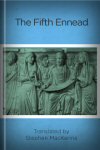
In the Fifth Ennead, Plotinus identifies underlying principles of reality: “the One,” the Intellectual Principle, and the soul.
Contents
- The Books of the Fifth Ennead
- The Three Initial Hypostases
- The Origin and Order of the Beings Following on the First
- The Knowing Hypostases and the Transcendent
- How the Secondaries Rise from the First: And on The One
- That the Intellectual Beings are not Outside the Intellectual Principle: And on the Nature of The Good
- That the Principle Transcending Being has no Intellectual Act. What Being has no Intellectual Act. What Being has Intellection Primally and What Being has it Secondarily
- Is there an Ideal Archetype of Particular Beings?
- On the Intellectual Beauty
- The Intellectual-Principle, the Ideas and the Authentic Existence
- Acknowledgements
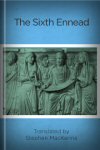
In the Sixth Ennead, Plotinus delves into the kinds of being established by the Intellectual Principle and the diverse ideas which may be found in the intellect; concluding with a discussion of the good—“the One’s” moral nature.
Contents
- The Books of the Sixth Ennead
- On the Kinds of Being (1)
- On the Kinds of Being (2)
- On the Kinds of Being (3)
- On the Integral Omnipresence of the Authentic Existent (1)
- On the Integral Omnipresence of the Authentic Existent (2)
- On Numbers
- On the Origin of Multiplicity in the Ideal Realm and on the Good
- On Free-Will and the Will of the One
- On the Good, or The One
- Acknowledgements
Stephen MacKenna (1872–1934) was born in Liverpool, England. He worked as a European correspondent for the New York World. While in St. Petersburg, Russia he read the Enneads. He decided that to translate Plotinus was “worth a life” and thus devoted two decades to the task.
Plotinus (204–270 AD), the founder of Neoplatonism, was born in Lycopolis, Egypt. In his 20s he travelled to Alexandria where he studied philosophy under Ammonius Saccas until 242. For the next two years, he studied Persian and Indian philosophy. Plotinus then traveled to Rome where he established a school of philosophy and taught for 20 years. His work influenced many great thinkers including Augustine of Hippo, Boethius, Thomas Aquinas, Moses Maimodides, and Hegel.